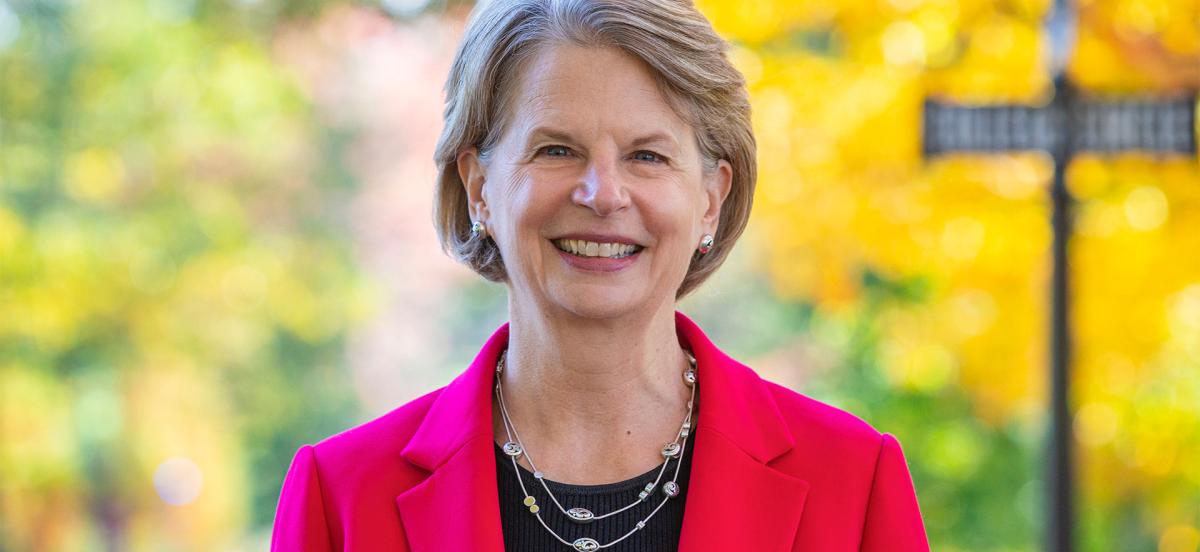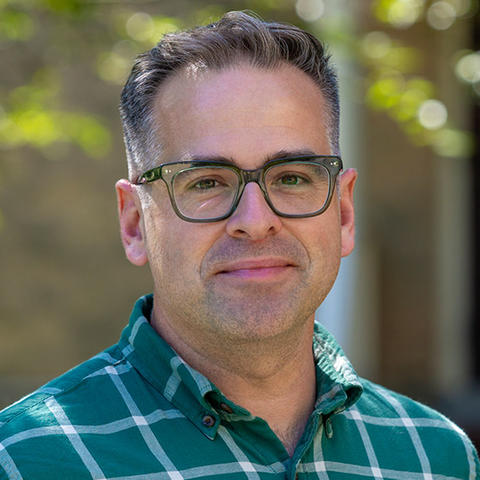President Wendy Raymond Joins 91 College Presidents to Advance Civic Preparedness and Uphold Free Expression on U.S. Campuses

Photo by Patrick Montero.
Details
Through the unique consortium convened by the Institute for Citizens & Scholars, participating presidents reinforce their dedication to preparing the next generation of well-informed, productively engaged, and committed citizens.
Recognizing this urgent moment for American higher education and our democracy, Haverford College President Wendy Raymond is joining 91 other college presidents of diverse institutions from across the country to advance higher education’s pivotal role in preparing students to be engaged citizens and to uphold free expression on campus.
Through College Presidents for Civic Preparedness, a unique consortium designed by the presidents and convened by the Institute for Citizens & Scholars, participating presidents are dedicated to preparing the next generation of well-informed, productively engaged, and committed citizens; defending free expression, civil discourse, and critical inquiry as essential civic norms; and increasing thoughtful engagement and better understanding by students for the effective functioning of our democracy. The consortium, first announced with 15 members in August 2023, has grown significantly, demonstrating momentum for this movement.
Participating presidents will take campus-specific and collective action, reflecting three shared Civic Commitments:
· Educating for democracy is central to our mission.
· We will prepare our students for a vibrant, diverse, and contentious society.
· We will protect and defend free inquiry.
Taken together, these fresh commitments embrace both free speech and diversity, two values often pitted against each other, by instead emphasizing meaningful engagement and inquiry with different voices and viewpoints. The commitments stress diversity as a strength of both American democracy and campus life and affirm the truth-seeking role of higher education through curiosity and inquiry. They also enable campus leaders to take substantive action to promote democratic engagement among students, with public accountability for progress through publication of an annual impact report.
"Expressive freedom is a cornerstone of scholarly inquiry and discourse," notes Raymond. "It is essential to our work of advancing Haverford's mission, now and into the future, as we prepare students to be active citizens in whatever communities they live, work, and serve."
Presidents are developing campus-specific programming to advance the Civic Commitments in 2024, including new courses, outside speakers, student orientations, presidential speeches, technology tools, and voter education initiatives. A complete listing appears on the consortium website. At Haverford, planned programming includes:
The Ad Hoc Committee on Freedom of Expression, Learning, and Community will identify areas of concern, strength, and opportunity for the coexistence and interchange of expressive freedom and the fostering of campus community so that all members can thrive. Along with reporting its findings, the Committee will recommend to the president future actions for consideration.
Meeting the Moment: Community in Dialogue, a College-wide effort to foster a campus culture of open dialogues and understanding, will equip students, faculty, and staff with tools to engage critically, thoughtfully, and responsively on complex local and global issues,through a diverse array of programs, talks and panels, trainings and workshops, and civic actions.
Haverford enthusiastically supports student and staff participation in our democracy in multiple ways. The College now hosts a polling place on campus for all who live within the precinct (which includes nearly all of campus, along with the surrounding neighborhood). Faculty and staff, most of whom do not vote on campus, may request up to three hours of paid time off to vote at their local polling station. Employees may also request up to a full day of paid time off to volunteer their services to local election officials for non-partisan purposes.
In addition to championing these commitments on our own campuses, the presidents will undertake together and through the Institute a set of collective actions:
· Meet regularly and confidentially for peer learning and the exchange of information, ideas, practices, and tools, including on such topics as the 2024 elections and student activism;
· Help faculty engage effectively with free expression and civil discourse in the classroom by participating in the Faculty Institute on Dialogue Across Difference; and
· Create and seize opportunities for shared advocacy and public outreach on civic preparedness in higher education.
“Higher education has a responsibility to provide students with critical civic skills and knowledge to participate effectively in our constitutional democracy,” said Rajiv Vinnakota, president of the Institute for Citizens & Scholars, a nonprofit that cultivates talent, ideas, and networks that develop young people as effective, lifelong citizens. “College campuses are among the most diverse spaces in our country, and college is an important time for students to develop the habits, practices, and norms to live in a multicultural and interconnected democracy. Doing so can create a ripple effect, making young people more optimistic and increasingly committed about their future and our nation.”
College Presidents for Civic Preparedness has been supported by ECMC Foundation, Einhorn Collaborative, John S. and James L. Knight Foundation, One8 Foundation, Arthur Vining Davis Foundations, Lumina Foundation, Charles Koch Foundation, and Teagle Foundation, with individual campuses providing support for their own related projects.




